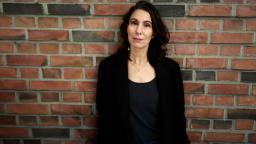
Ligan
(The Pioneers)
by Fatima Bremmer
reviewed by Kathy Saranpa
Bringing women of the past out from under the shadows of masculine achievement has been a long-term project of feminist historians in many areas, and it is far from finished. Fatima Bremmer makes a significant contribution in her study of a group of Swedish women journalists fighting their way into a male-dominated field at the beginning of the 20th century. These women called themselves ‘Ligan’, which can be translated as ‘alliance’ or ‘league’ but also as ‘gang’. And my sense is that they would not have been averse to the connotations of the latter – after all, Bremmer chooses an event in which they dressed as she-devils to introduce them at the beginning of her book.
Bremmer focuses on eight women, initially working for almost as many papers, as they pursue their careers in Stockholm’s Klarakvarteren, eventually meeting regularly at a local confectionery. Over time they formed a close-knit group of colleagues. The neighbourhood, once housing the editorial staffs of most of the city’s newspapers, is now part of Norrmalm. All that remains today is an old clock that belonged to Stockholms-Tidning, one of the publications located there. But the results of the activism of the ‘Gang’ outlived the neighbourhood and continue to do so.
Originally, the women met to support one another in a world where they were not only given lesser tasks to do – summarizing the work of male reporters – but were also considered with suspicion and disfavour because they worked outside the home although they were middle class, often keeping late hours. In the Gang, they found protection, mutual encouragement and eventually close friendships. As they gained confidence and began to rise in the ranks to the coveted role of reporter, they realized the power of organisation. They began to wear trousers when interview conditions made it more practical. They agitated for better pay and conditions, and in their new roles, they learned more about the workings of the world – and began to work on greater social issues as well. They were instrumental in the campaign for women’s suffrage in Sweden, where women voted in their first election in 1921. They participated in peace movements, and they were active in the Swedish organization Rädda barnen (Save the Children), particularly in bringing to Sweden Jewish children during the Holocaust and Finnish children during World War II.
But Bremmer’s book is not simply a description of a group of activists. The women appear in all their flaws and personal defeats. Infidelity, suicide attempts, substance abuse – there is plenty of tragedy in the history of the Gang. But wherever adversity strikes, there are friends ready to catch the ‘sister’ who is in need of help. One of the most famous of the members, Elin Wägner, had a particularly difficult past when she became a journalist – her younger sister drowned before her eyes and she had a love affair that ended badly. Ester Blenda Nordström, one of Sweden’s first investigative reporters with an impressive list of travels (even to places difficult for men to reach), could not be public about her great love, Carin Wærn Frisell, as homosexuality was illegal at the time.
Bremmer’s research is exhaustive. Tracking letters and published material for at least eight women over the course of almost an entire century is certain to have taken several years. In her acknowledgements she thanks those who researched these journalists previously, but her own portion is sure to have been mammoth. Ligan is not only a testament to ‘a remarkable explosion of feminine intelligence’, as John Landquist, brother of member Ellen Landquist, expressed it; it is an overview of a long stretch of history seen through the eyes of the women who attempted to understand it, express it, and make it more fair and liveable for others.

Ligan
Forum, 2025, 397 pages
Rights: Anna Frankl Garp, Nordin Agency
Fatima Bremmer won the August Prize for non-fiction in 2017 for her book Life in Every Breath, a biography about the rule-breaking iconic journalist and adventurer Ester Blenda Nordström. The Pioneers is her third book.
